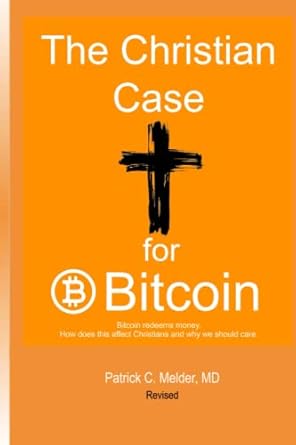
Blockchain & Decentralization
Decentralization is a major cultural trend impacting all aspects of life in the 21st century. It is often associated with digital currency (especially Bitcoin) infrastructures and is considered a technology with little bearing on our lives.
While it is true the term “decentralization” is mainly associated with cryptocurrencies, it is a remarkable revolutionary trend that has profound ramifications in all facets of society: finances, yes, but also politics, social life, companies, and even churches and Christian fellowships.
In this interview, Dr. Melder explains how Bitcoin aligns with Christian principles by enabling economic empowerment without creating dependency in missions work, contrasting it with the immoral fiat monetary system that traps people in debt slavery and forces Christians to work multiple jobs instead of spending time in fellowship and prayer. As a former ENT surgeon who left medicine due to depression and systemic corruption, Melder discovered that Bitcoin serves as a “plumb line” revealing the truth about our manipulated financial system, where only God should have the authority to create something from nothing, yet governments have usurped this power through fiat currency. He now uses Bitcoin technology in Guatemala to provide economic opportunities while cleaning Lake Atitlán through innovative mining projects that capture methane from waste treatment facilities, demonstrating how this “deflationary” money allows people to save time and resources rather than having their lives “inflated away” by the current corrupt monetary system that benefits a small group of powerful elites at everyone else’s expense.

In this video, Jimmy Song argues that Bitcoin restores the biblical “sowing and reaping” model where people must first work and save before enjoying rewards, contrasting it with the fiat system that allows people to “reap first” through debt and loans, then pay later. He views fiat money as unbiblical because it reverses God’s natural order, leading to wasteful spending and “debt slavery,” while Bitcoin encourages proper stewardship by requiring people to accumulate value through legitimate work before they can spend it. For Song, Bitcoin represents “fair money” that aligns with biblical principles of delayed gratification, personal responsibility, and honest wealth accumulation, much like teaching a child to earn money through chores before buying a toy rather than giving them the toy first and making them pay it off later.
